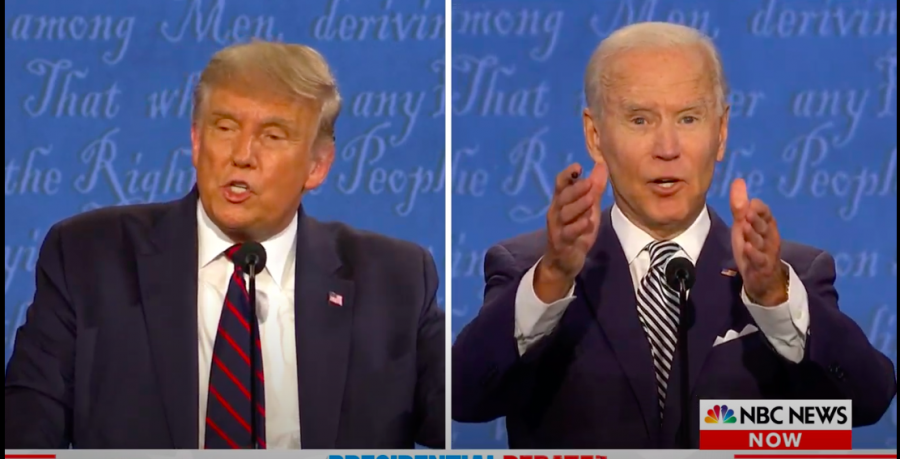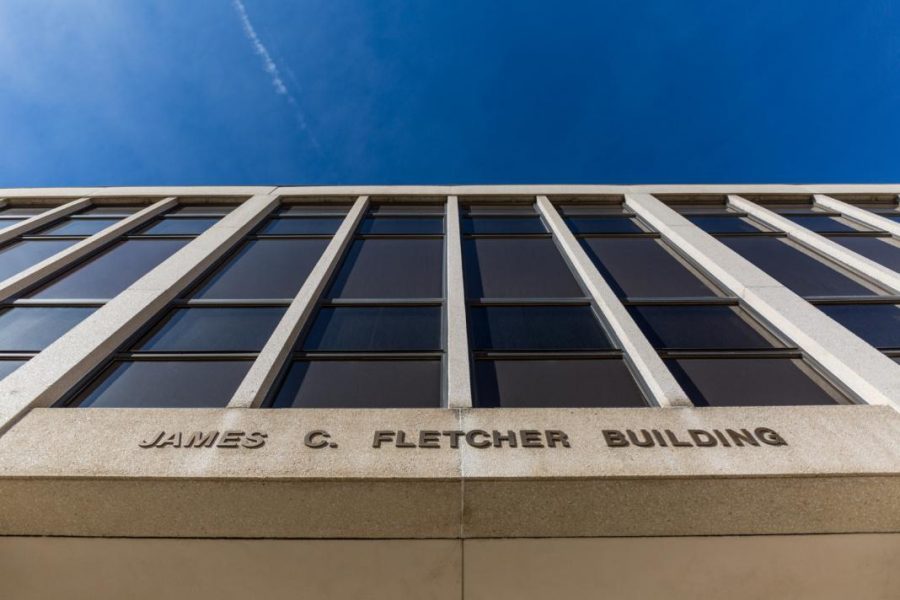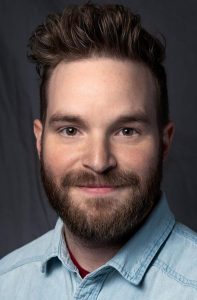The death by suicide of a Ph.D. candidate in the University of Utah’s Physics and Astronomy Department in October 2017 sparked an independent legal investigation into the student’s experience at the school. This March, the U released that investigation’s final report to the public.
Following the completion of the investigation, U administrators are replacing physics chair Ben Bromley. The Mathematics Department’s Peter Trapa will be assuming the position, advised by Bromley and a second physics faculty member, Christoph Boehme. Administrators also closed the physics graduate program to new enrollment for at least the 2018-2019 school year and possibly longer, a step which some professors in the department call rare and extreme.
The investigation report — compiled by attorneys from the Miami-based law firm Foley & Lardner — details both issues that the student experienced in the Physics and Astronomy Department as well as problems with the department itself.
After the student’s death, allegations were made that the report said were investigated through reviews of documents and interviews with more than 40 people. However, the memorandum notes that the firm was not “able to access all potentially relevant emails from personal email accounts, which may have further informed our findings and conclusions.”
The Student’s Time at the U
Accusations of sexual harassment and “other unlawful action[s]” were made, which the report calls “vague” and “anonymous,” but no evidence of such action was found, nor did anyone close to the student mention any related concerns.
What the report did find was that, “the student’s course of study was delayed and the student did not appear to have a clear path to graduation.” The student was found to have not taken the program’s qualifying exam “until well into the seventh year of graduate study” — four years after policy dictates.
In some Ph.D. programs, students take classes for a few years before they identify a specific research interest and make arrangements to join a lab for the rest of their time in the program. Prior to beginning work in a lab, students take a two-part exam. The first half consists of the student’s advisory committee members asking general questions about the field; these should have been covered in the student’s coursework. The second half consists of the student proposing their research interest for the rest of their time in the program.
At the U, this is called the qualifying exam, and policy in the Physics and Astronomy Department dictates that students should take it by the end of their third year.
In addition to the delayed qualifying exam, the student was in their eighth year of study at the time of their death, and “had no definitive plans to defend a thesis” and graduate. According to the report, policy in the department stipulates that students complete the program and graduate with a Ph.D. in seven years.
During the student’s time in the Physics and Astronomy Department, the report said, the student worked in a “generally tense lab environment” under a workload that “at times went beyond the expected workload and experience of a rigorous Ph.D. program.”
According to the report, “Temper flares and shouting matches among lab personnel occurred with relative frequency, and the lab members experienced a number of intense disputes over access to materials and resources.” The report also stated, “These disputes became disruptive to such an extent that certain personnel were assigned to conduct their work with their own equipment in a different physical location from other lab members.”
The report also found that the student, an international student, experienced issues with their visa. The student’s visa expired for about a year between December 2015 and December 2016, “leading to a hiatus of at least six months” in their research work toward a Ph.D.
The memorandum said the “loss of visa status stemmed from a lapsed submission deadline” and that both University employees and the student themselves have responsibility in this process — faculty members to “timely provide required information,” and students to “[keep] abreast of deadlines.” The report said that some faculty are confused by the process.
The investigation’s report also found that the student, along with another graduate student in the program, was asked to write a letter of support for tenure for a professor in the Physics and Astronomy Department, which is a breach of the U’s code of conduct for faculty members.
It additionally found that, shortly before the student took the qualifying exam in their seventh year, “a unilateral substitution was made to the composition of the student’s advisory committee, contrary to university policy.”
The advisory committee is composed of five faculty members chosen by the student, one of whom is the head of the lab the student researches in. That faculty member serves as the student’s research advisor and the chair of their advisory committee, as the research the student works on — under their direction — is the topic of their thesis paper.
Until early 2017, the only responsibilities of a student’s advisory committee were to participate in the student’s qualifying exam and again in the defense of their thesis, after which a student would graduate. Students pass qualifying exams only by consent of the entire advisory committee and, similarly, only graduate if the committee agrees they are ready to do so.
A Dysfunctional Department
The problems the investigation found were not limited to this particular student’s experience. The report said that “the student’s delayed course of study was not unique,” oversight of advisory committees “does not appear to have occurred to a significant degree,” department policies “are not uniformly enforced” and “students have incomplete knowledge of their rights and options with respect to raising concerns.”
The investigation also found that tensions in the department extend beyond the specific lab in which the student worked to the entire Physics and Astronomy Department.
“The department suffers from a lack of cohesiveness and disharmony amongst many faculty members,” the report said, which were in part caused by disagreements over another graduate student’s progress in 2015. Professors disagreed over “the role of the student’s supervisory committee and advisor, and how decision-making should proceed in the event of conflict among individuals who are responsible for a student’s progression.”
The memorandum continued, “Currently, a number of faculty members refuse to speak with each other, pointing to issues with loyalty and trust … Faculty members remain factionalized, with groups of individuals barely communicating with each other, requiring outside intervention by administration at times.”
The report concluded that international students in particular are not well-represented in the Graduate Student Advisory Committee in the Physics and Astronomy Department, essentially the only form of student government open to graduate students at the U. It also said these students may be unwilling to report issues they experience and may not know about health and mental health services available to them. It noted that international students are particularly vulnerable to potential “abuse of power” by their advisors, “who [oversee] progression, [control] research and recommendations, and [certify] visa-related documentation.”
The memorandum concludes with recommendations to address these problems, suggesting — among other things — outside leadership of the Physics and Astronomy Department, management training for its faculty members, proper oversight of students’ advisory committees and changes to the way in which visa issues are handled.
The report noted that policies which changed the responsibilities of advisory committees — broadening their supervision over graduate students in an effort to ensure students have somewhere to report concerns — were put into place in March 2017, just five months before the student’s death. “This policy facially addresses a number of concerns illuminated by this review,” the report read. However, it noted that the policy must actually be implemented, along with consequences for faculty members who don’t follow it.
Elsewhere in the report, it said, “To the extent that follow-up items need to be discussed and approved by the faculty body, [interpersonal issues in the department serve] as a significant barrier to doing so.” The report continued, “Department enforcement of policies has been inconsistent and its implementation of new policies has been delayed. Department leadership has consistently made efforts to improve but has not been able to effectively navigate the many barriers and roadblocks that have arisen over time among the faculty.”
According to a statement from the U, the change in department chair and the suspension of graduate enrollment are part of the school’s efforts to address the issues in the physics department.
“The University of Utah is committed to providing a supportive environment for its graduate students, and we want to do everything possible to ensure they are able to complete their degrees in a timely manner,” said Associate Vice President for Faculty Amy Wildermuth in the statement.
Wildermuth continued, “As a learning institution, we constantly evaluate our ability to keep these promises. If a program is unable to fulfill these commitments, we make necessary adjustments — always with our students’ best interests in mind. The outside review’s recommended changes will better support current students and foster a professional learning environment — important outcomes that we all share at the University of Utah.”
****************************
If you or someone you know is at risk of self-harm or suicide, seek help as soon as possible by contacting agencies specializing in crisis intervention and suicide prevention. Services are available to University of Utah students during business hours through the Counseling Center at 801-581-6826. Utah residents can call the UNI CrisisLine 24/7 at 801-587-3000, and the National Suicide Prevention Lifeline can be reached 24/7 at 1-800-273-TALK (8255).
@EliseAbril




















neat • Jan 7, 2021 at 10:16 am
I completely agree. There should be accountability of authorities in education institutions.
Unfortunately help came too late for this PhD student who killed herself recently.
https://www.how2havefun.com/thought-of-the-day/suicide-of-phd-student-nadia-ashraf-is-murder/
Megan Hulse • Apr 3, 2018 at 9:21 am
Comments are currently disabled for this story, due to its sensitive nature. All comments submitted are sent directly to the editor, for information gathering purposes.